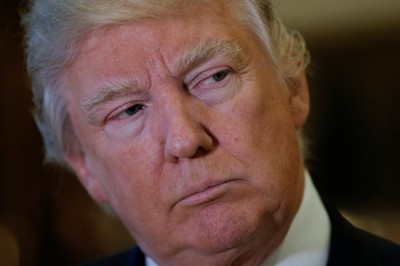Trump Press Conference: The Oligarchy Rules

Donald Trump’s press conference Wednesday morning was an hour-long demonstration of oligarchic arrogance and contempt for democratic principles that has no parallel in modern American history.
The occasion for the press conference was the president-elect’s announcement of plans to put the Trump Organization, his main business entity, under the management of his two sons, Donald Jr. and Eric. The senior Trump would step down from all formal management roles while retaining his status as the principal owner.
These arrangements have been denounced by former government ethics officials as a travesty of longstanding norms: every US president in the modern period, no matter how wealthy, has been compelled to place all his assets in a blind trust to prevent overt conflicts of interest.
The event was dominated, however, by the issue of alleged Russian hacking of the Democratic National Committee and the Clinton campaign during the 2016 elections, with many questions relating to a document containing unverified allegations that the Russian government collected compromising material on Trump with an eye to future blackmail.
While the Democratic Party has chosen to center its critique of Trump on material provided by its allies in the CIA, the real assault on the public embodied in the incoming administration was visibly demonstrated at the news conference.
A significant portion of the event was given over to Trump’s legal advisor, who declared that the “business empire built by President-elect Trump over years is massive,” and proceeded to explain why conflict-of-interest statutes do not apply to Trump. She assured the American people that Trump “is not exploiting the office of the presidency for his personal benefit.”
Trump aides piled up hundreds of manila folders allegedly comprising documents showing the various arrangements to be made with respect to the Trump Organization. While the president-elect boasted of his wealth and success, he reiterated that he is exempt from conflict-of-interest rules (due to an obscure 1978 law passed to retroactively legitimize the free pass given to billionaire Nelson Rockefeller when he was appointed vice president by Gerald Ford in 1974).
Trump was not just citing a legal technicality. He was declaring the complete immunity of the super-rich from the laws and regulations that apply to lesser folk. It is the 21st century version of the aristocratic principle asserted by the nobility before the French Revolution: society is divided into two camps—those who make the rules, the wealthy elite at the top, and those to whom the rules apply, the vast majority, the working people.
Insisting that he had the right to do whatever he wanted, Trump at one point declared: “As president, I could run the Trump organization, great, great company, and I could run the company—the country. I’d do a very good job [at both], but I don’t want to do that.”
The Freudian slip, mixing up “company” and “country,” was the most revealing moment in the press conference. For Trump, the “country” and the “company”—and, more broadly, the oligarchy—are one and the same.
Particularly significant during the news conference was Trump’s menacing of the press. He flatly refused to take a question from CNN reporter Jim Acosta, accusing the network of being “fake news” because it was the first news outlet to report on the document claiming that Russia had obtained compromising material on him. Trump also made an ominous threat against the Buzzfeed website, which published the document online, declaring, “They’re going to suffer the consequences. They already are.”
There was a heavy-handed atmosphere of bullying throughout the event, which had a fascistic smell to it. There is no question that the administration is prepared to use extreme levels of violence abroad and within the United States against what it perceives to be its main threat, the working class.
The personnel of Trump’s cabinet shows—in such figures as billionaire asset stripper Wilbur Ross, multi-millionaire fast food magnate Andy Puzder, former Exxon Mobil CEO Rex Tillerson, and billionaire heiress and charter school advocate Betsy DeVos—that the new administration will be one of unrelenting war against the working class, destroying jobs, social services such as education and Medicare, and any remaining restrictions on the exploitation of labor.
Behind it all is an overpowering element of decay, nepotism and social filth—a new low, even by the tawdry standards of American capitalist politics. It represents the establishment in the United States of government of, by and for the financial oligarchy.
The new occupant of the White House is the personification of what has been developing over decades: an ever-increasing concentration of wealth at the very top of American society, and the crystallization of a semi-criminal ruling class whose wealth is derived from financial manipulation, not the development of the productive forces.
The Democratic Party bases its opposition to Trump not on the social character of the new administration as a government of the oligarchs, but on disputes over foreign policy, in which the Democrats happily embrace the opportunity to adopt a neo-McCarthyite anti-Russian stance and align themselves closely with the military-intelligence apparatus.
This is because the Democratic Party too is a political instrument of the billionaires, a different variant on the same theme. Indeed, everything that Trump will implement has been prepared by the Obama administration.
There is deep and growing anger among workers and youth. According to the latest poll figures, Trump—the most unpopular president-elect in history—now has a favorable rating of only 37 percent, with the majority of the population viewing him unfavorably. This is before he even takes a single action as president of the United States. Masses of people are in for a shock beyond anything they are prepared for.
There must and will be mass opposition. It will come from the working class, the vast majority of the population that is completely excluded from official political life. To prepare for these struggles, the working class must be politically organized and mobilized, and armed with a revolutionary and socialist perspective.

